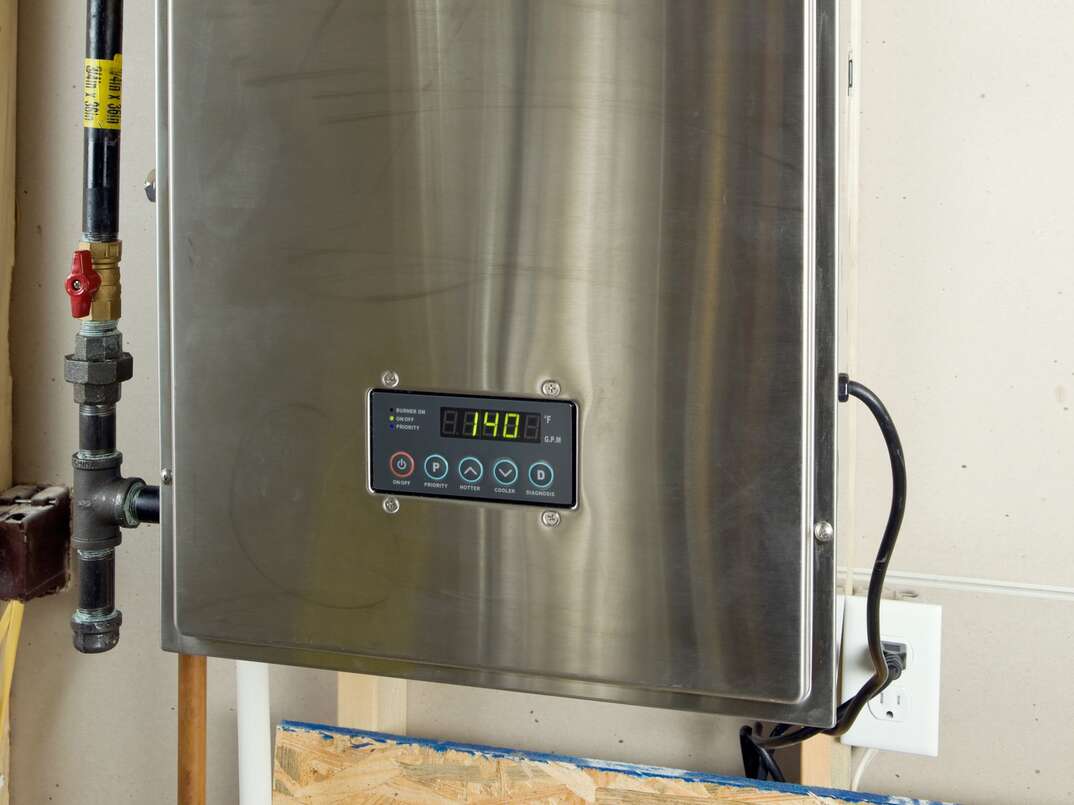What Is a Tankless Water Heater?

There's nothing worse than turning on your shower only to discover that your family has already used all the hot water.
If this problem sounds familiar, installing a tankless water heater could be a wise move.
What Is a Tankless Water Heater?
A tankless water heater produces hot water on demand whenever you turn on a hot water faucet. The units are smaller than regular water heaters with a tank, making them suitable for installing in tight spaces like closets and pantries. There are electric and gas models available. Gas-powered water heaters may offer higher flow rates.
Tankless water heaters have a gas-powered flame or electric element that heats water as it flows through the unit. Water pumps through the unit when you turn on a hot water faucet to supply your fixture.
Do They Really Give On-Demand Hot Water?
In theory, a tankless water heater produces hot water on demand because it can heat water at a rate of between two and five gallons per minute. However, a single unit may not meet your demands if you live in a large household. Some families may need to install more than one unit to ensure an on-demand supply.
How Is It Different From a Traditional Tank-Style Water Heater?
The primary difference between a tankless water heater and a tank-style model is that you won't need to store a large hot water tank in your home. Heaters with a tank can run out of hot water if demand outstrips supply. Therefore, installing a tankless model could help you say goodbye to cold showers — provided you install the correct unit size for your needs.
According to the U.S. Department of Energy, tankless water heaters are between 8% and 34% more efficient than tank-style models. The average lifespan of a tankless water heater is around 20 years or longer with proper maintenance, compared to between 10 and 15 years for a model with a tank.
On the other hand, tankless water heaters are more expensive than regular heaters. However, the savings on your energy bills and the longer projected lifespan could make them more cost-effective over time.
Elocal Editorial Content is for educational and entertainment purposes only. Editorial Content should not be used as a substitute for advice from a licensed professional in your state reviewing your issue. Systems, equipment, issues and circumstances vary. Follow the manufacturer's safety precautions. The opinions, beliefs and viewpoints expressed by the eLocal Editorial Team and other third-party content providers do not necessarily reflect the opinions, beliefs and viewpoints of eLocal or its affiliate companies. Use of the Blog is subject to the
Website Terms and Conditions.The eLocal Editorial Team operates independently of eLocal USA's marketing and sales decisions.



